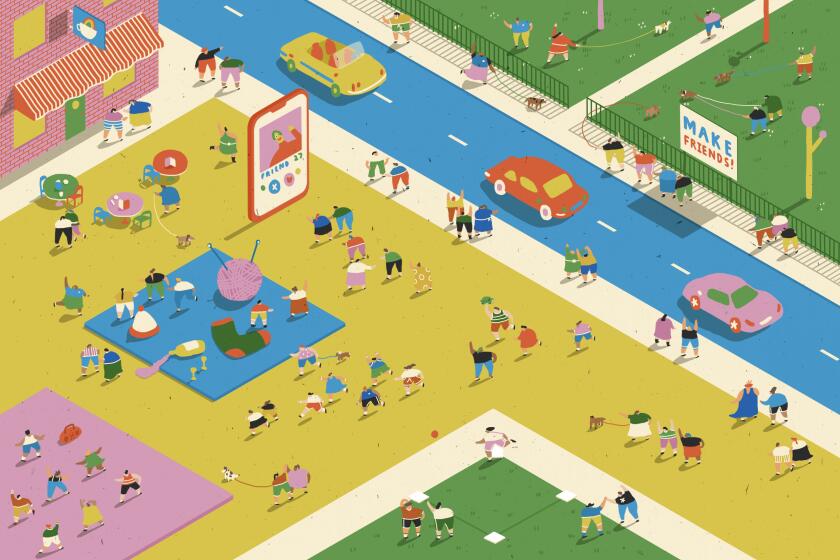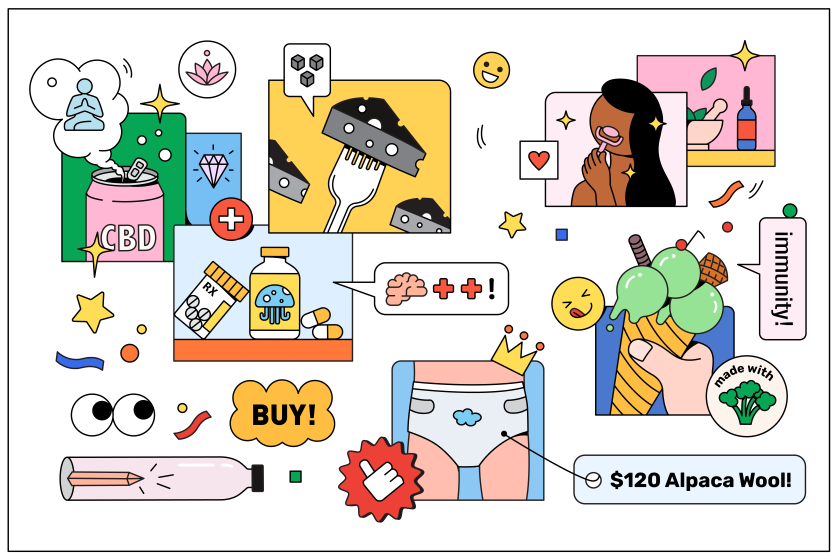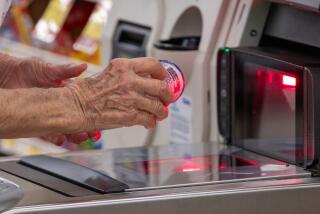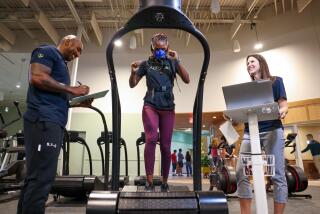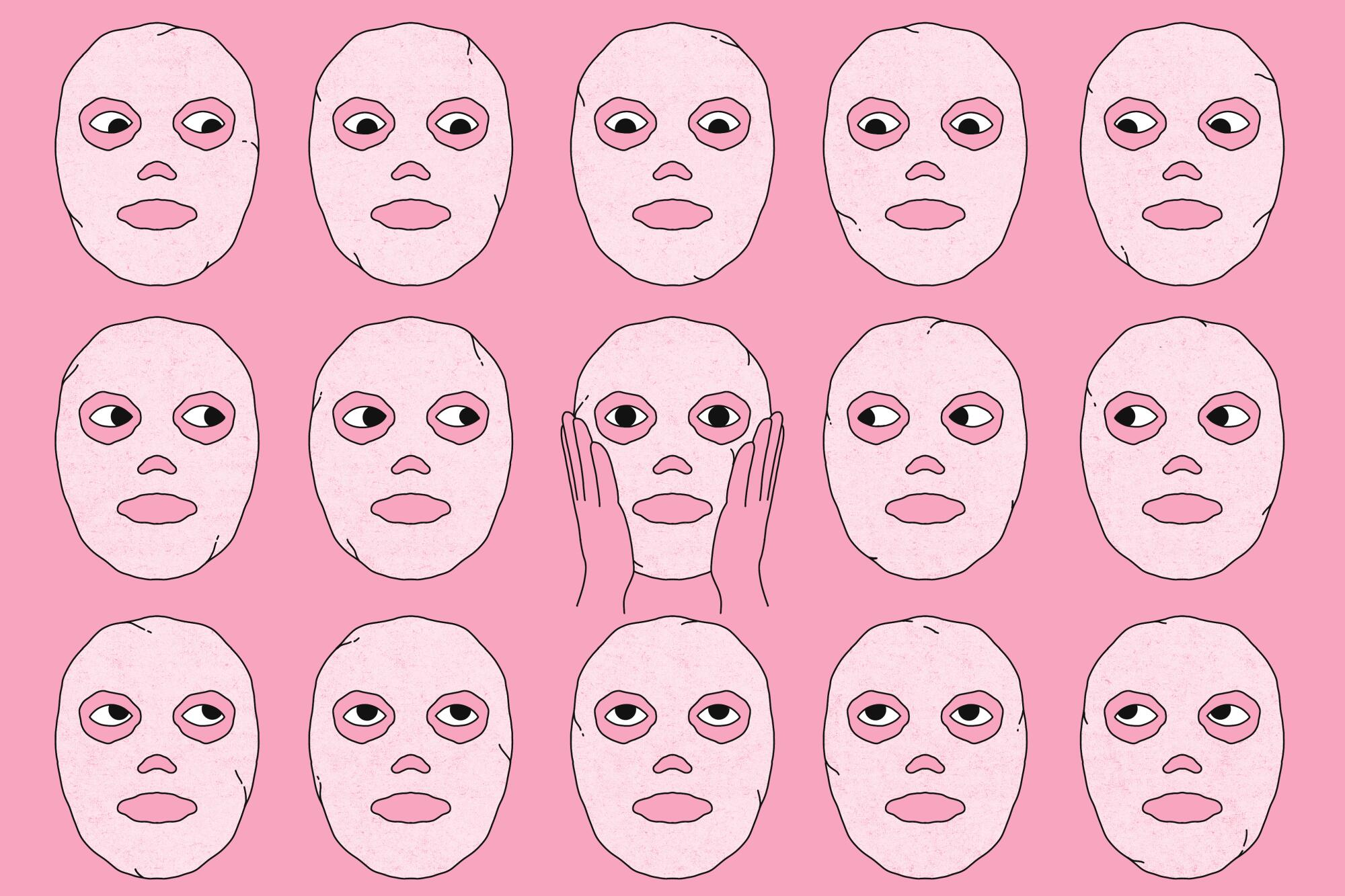
When Mariah Haase, 27, wanted to take better care of her health at the start of the pandemic, she turned to the internet. The Boulder, Colo., accountant Googled “self-care,” a term that saw record-high searches in 2020.
But Haase didn’t come across much concrete health advice. “I [was] only seeing face masks, bath bombs and products,” she recalls. “I don’t really consider that self-care. It can be, but if you have to spend money to take care of yourself, I feel like it’s just another sort of trick that society plays on people.”
The term “self-care” suggests the pursuit of physical and psychological health — a worthy endeavor in a society running full speed ahead, with burnout ever on the horizon. But over the last several years, the term has become more synonymous with shopping for expensive tools: skincare, candles, crystals and even Botox. Nearly anything can be rebranded as “self-care,” transforming the once radical and political idea — as civil rights activist Audre Lorde demonstrated in the ‘60s — into a hyper-consumerist endeavor.
An exploration of friendship in Los Angeles, from guides on how to make friends and set boundaries to touching stories of people who stepped up.
According to Barbara Riegel, a professor of biobehavioral health sciences at the University of Pennsylvania and a leading researcher on self-care, “treat yourself” consumerism does not meet the term’s definition. Physiological and psychological health maintenance — such as sleep management and exercise — along with elements like self-managing illness or chronic conditions (such as monitoring for symptoms and taking insulin for diabetes) fit the criteria better than an online purchase ever could. “I don’t just look at the soothing benefit of taking a nap,” says Riegel.
Getting proper sleep and exercise demands a commitment to real behavioral change. And who has the time, resources or availability for real change?
That’s not to say we can’t try to tend to our health, but rather that we might want to reframe how to approach what “self-care” is all about. And in fact, the concept — along with consumer trends — is already shifting.
A bubble bath can only do so much
Ironically enough, self-care through consumption and particular marketed activities can exacerbate stress. If we don’t reach our inner Zen, we blame ourselves. “[That] you need to improve the ways in which you care for yourself can play into people’s really deep insecurities,” says Christine Whelan, a clinical professor of consumer science at the University of Wisconsin–Madison. You might think, “I didn’t relax right or I didn’t spend enough time on it.”
Whelan views these added pressures as representative of our culture of perfectionism. We need to be calm, positive, put together and “well” — pressures reinforced by social media, which sell us both unattainable ideals and then the pricey “solutions.”
Carly Swenson, 38, an artist in St. Paul, Minn., heard a phrase in a wellness workshop that encapsulated her feelings on modern self-care: “the subtle aggression of self-improvement.” It was attributed to an Australian meditation teacher named Bob Sharples. To Swenson, “this implies, marketing-wise, that you’re not enough, or that you can’t really love yourself without the proper supplements, bath salts, crystals or the like.”
You then compare how other people engage in the wellness “lifestyle.” Wellness becomes a competition.
Meanwhile, social support is one of the pillars of mental health, yet it’s often overlooked within hyper-individualized, commodified wellness. Pushing consumerism ensures people seek comfort at home, alone with their arsenal of spa goodies.
A 2020 survey of 10,000 Americans conducted by Cigna found that 61% of respondents suffer from loneliness. The rate is roughly the same in 2022.
“Companies were like, ‘Buy this product and you’ll feel better about the fact that so much is going wrong in the world.... It’s so crazy how basic human needs have just become commodities.”
Haase was particularly disappointed by marketing that ignored her most glaring problem during quarantine — lack of human connection. “Companies were like, ‘Buy this product and you’ll feel better about the fact that so much is going wrong in the world and you’re completely alone at home [during the pandemic] having to deal with this without seeing anybody,’” she said. “It’s so crazy how basic human needs have just become commodities.
“I think that a big part of self-care is reaching out to people and having people to talk to,” says Haase, who now prioritizes quality time with friends. “You really can’t do this life thing alone.”
Critics also note that our culture’s interpretation of self-care treats the symptoms instead of addressing the root issues.
As I explain in my new book “The Gospel of Wellness,” Americans — especially women — turn to self-care because they feel overwhelmed and overburdened. Everything from unsustainable workloads and tech overload to paltry U.S. childcare policies have us searching for solutions.
Self-care discourse acknowledges the need to focus on sleep, exercise and tend to basic needs. But too often, it puts the onus on the individual to calm or support themselves instead of tackling why they’re so sleep-deprived or stressed, thereby divorcing stress from social, economic and political contexts.
During the pandemic, Americans rediscovered crafting. Now companies, looking to prevent burnout, are offering stressed-out workers crafting classes.
Take the corporate sector, where stress is often “framed as an individual problem as a result of making poor lifestyle choices,” says Ronald Purser, a professor of management at San Francisco State University and the author of “McMindfulness: How Mindfulness Became the New Capitalist Spirituality.” Oftentimes, the mandate to overcome stress is couched in the language of becoming “resilient.”
Corporate wellness programs can take the responsibility off the employer to do anything about the actual workplace conditions, says Purser. He points to Amazon’s WorkingWell program in which warehouse employees are encouraged to meditate in small “ZenBooths” for a few minutes before returning to fast-paced environments where they face health issues such as back problems and carpal tunnel syndrome. “There’s a hidden ideology behind these programs that it’s the individual employee who needs to adapt to these toxic, unfair or dangerous working conditions.”
Self-care practices, by Purser’s account, are mere “Band-Aids.”
Workplace gym classes, mindfulness programs and spa perks are not without merit, but they can’t fix a toxic work culture. Nor can they give us what we truly desire, like comprehensive parental leave benefits or adequate time off. (Not to mention, workplace wellness studies show mixed results in terms of affecting employees’ behavior or health care costs. They might just simply attract employees who already adopt healthy practices.)
Feeling sad or hopeless ? These 12 beautiful places in Los Angeles will lift your spirits.
Wellness dangles simple solutions we want to believe in, partially because it’s easier than dealing with what’s necessary: systemic or political change. Virginia Braun, a professor in psychology at the University of Auckland who specializes in health and gender, worries that consumerist self-care distracts women from collectively fighting for change.
“We only have so much energy. We only have so much capacity,” says Braun. ”And if we’re putting a lot of energy into [wellness], we’re unable to put it into something else.”
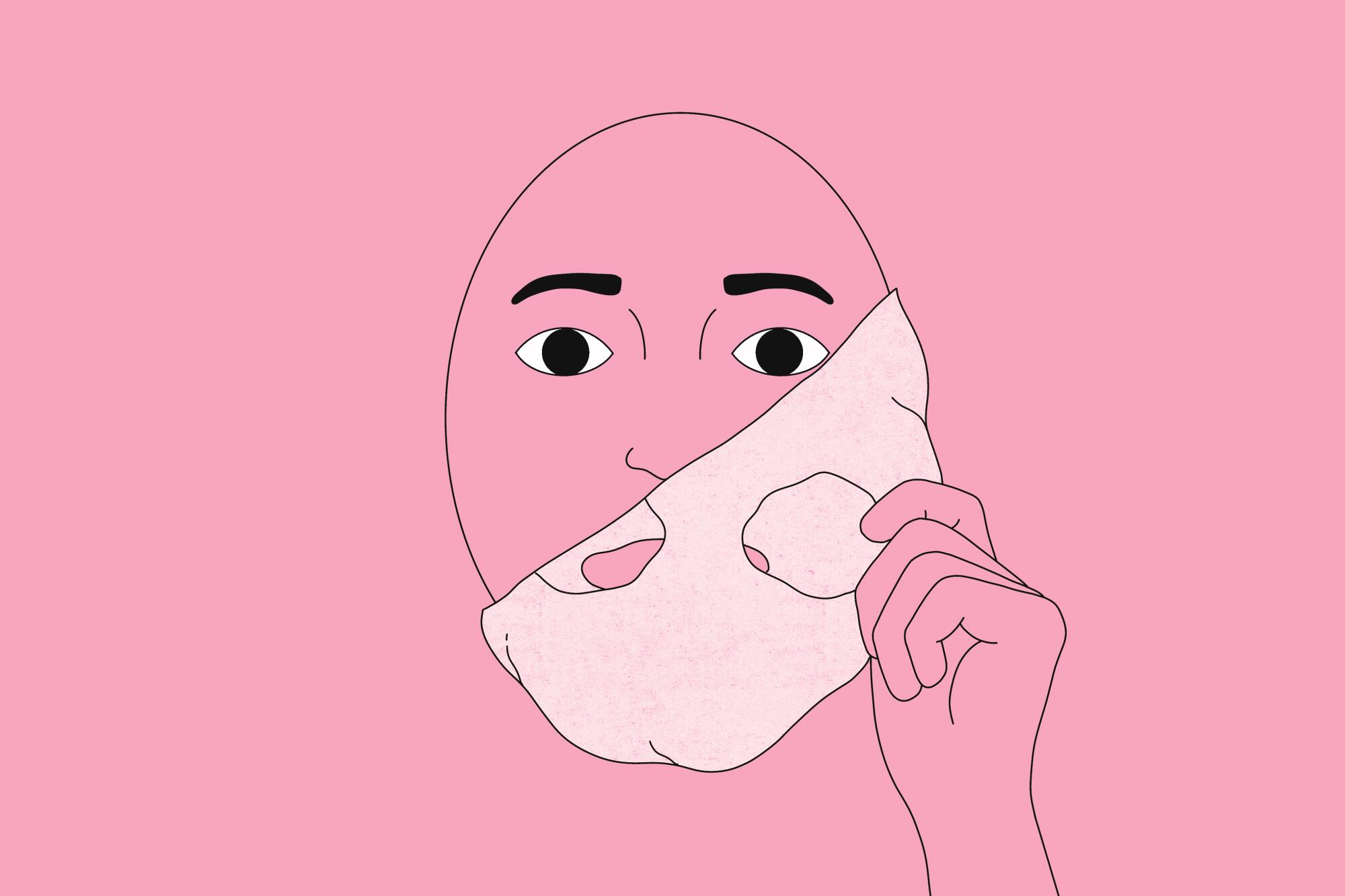
Self-care desires are shifting — for the better
“Self-care” Google searches for bath bombs and CBD are on the decline, according to Spate, a consumer-trends AI platform that analyzes more than 20 billion data signals across beauty and wellness. But ice rollers, cryotherapy, B12 injections and makeup categories (such as lipstick) are on the rise.
“A lot of today’s trends tend to come from TikTok, which is impacting self-care behavior as well,” says Spate co-founder Yarden Horwitz.
And yet, Spate is also seeing an increasing emphasis on science and mental health. Searches for anxiety medications have increased. “[Consumers] are trying to understand the science behind everything rather than the early days of it all [that centered on skincare masks].”
Since the pandemic has waned, more people have reassessed their self-care rituals, especially since many of their mainstays — the manicures, spa treatments, retreats — were inaccessible during lockdowns. A growing focus on mental health also inspired Americans to analyze whether Sephora shopping sprees are as helpful as advertised.
“Many of us understand that either our work trajectory or our lifestyle isn’t sustainable … I think people are trying to find [real] ways to feel better.”
“I do think it’s shifting,” says Swenson, noting a collective burnout. “Many of us understand that either our work trajectory or our lifestyle isn’t sustainable. … I think people are trying to find [real] ways to feel better.”
Youth intelligence data firm YPulse reports that nearly 80% of 1,500 13- to 39-year-olds surveyed say they are proactively working on their wellness. However, 90% say wellness differs for each person. Strict routines are on their way out, with 62% agreeing that brands promote “toxic” wellness practices.
In fact, YPulse respondents’ top self-care practices did not heavily rely on consumerism. These included, in order: exercise/walking, listening to music and reading.
Younger generations seem to have gotten the memo about human connection too: “We see that more and more [youth] think about their social life as part of their wellness,” says YPulse chief content officer MaryLeigh Bliss. Nearly two-thirds of respondents, skewing more Gen Z than millennials, agreed with the statement “my social life affects my wellness as much as physical health.”
CBD butt balm, charcoal cheese and other ridiculous wellness products are losing their luster as Gen Z shoppers exhibit a more critical eye.
As for corporate America, Purser notices a great deal of cynicism toward workplace wellness programs. He says employees realize that real self-care is not a DIY activity but “something that is integrated within a collective or communal structure.”
However you define or pursue self-care, experts suggest a moderate approach. Whelan recommends getting outside yourself: connecting with friends, volunteering or even just walking in nature to focus on something or someone else. It’s healthy to have ways to combat the daily stresses of life.
But also, she stresses, “Don’t blame yourself if it doesn’t work.” We cannot always fix systemic issues or situations out of our control.
More to Read
Subscriber Exclusive Alert
If you're an L.A. Times subscriber, you can sign up to get alerts about early or entirely exclusive content.
You may occasionally receive promotional content from the Los Angeles Times.
